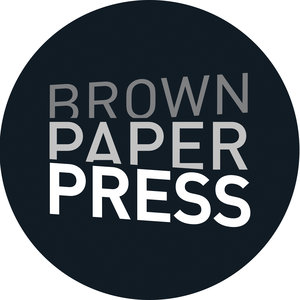I’m going to do something that small publishers normally don’t do.
No, I’m not going to dance naked on a coffee table. (Why would you even think that??) I’m going to talk about money.
Although we’ve only been in business four-ish years, I’ve toyed with a few different sales models: Print-on-demand, traditional distribution and website sales. Right now, we use the latter two:
Traditional distribution: Books are sold through a “middle man” — the distributor — which employs a sales force and gives steep discounts to bookstores and wholesalers (including Amazon). That discount ranges a bit, but tends to be around 50% — meaning the bookstore keeps half of the retail price of the book, and gives half to us. The distributor then takes in the range of 27% of that for storage fees and other costs.
Website sales: Books are sold directly to you, the readers, eliminating both the bookstore discount and the distribution costs.
Now, let’s see how this translates into real dollars.
A typical BPP book sells for around $16.99. That means that we sell the book to bookstores and wholesalers for about $8.50 apiece. Then, the distributor takes another maybe $2.30, which leaves us with about $6.20.
Out of that, we pay royalties — which, based on an average royalty deal, might equal in the neighborhood of 75 cents. Out of the remaining $5.45, we pay printing costs (usually around $2.50 a book), design costs (a couple grand per book), editing costs, marketing costs, etc. etc. etc. So you can see, it’s a tough road to hoe — unless you are Random House and are selling millions of copies a year.
Now, generally speaking, this is just fine with me. It’s the nature of the business, and I new that going in. And I’m usually happy to share the profits with the people who help me do the heavy lifting. The bookstores, for instance, are doing very heavy lifting. They are are placing the orders and giving our books valuable space on their shelves. They are exposing our books to real people in real time, and even talking up our books to their customers. They are handling all the actual sales— and the returns. The distributor, meanwhile, also is pulling its weight. Their sales force, ideally at least, has worked to get our books put into the bookstores in the first place. Plus, they are creating catalogues, warehousing the books, and shipping the books. Selling books through the traditional distribution model involves a lot of people — and everyone deserved a cut.
Except when it comes to Amazon.
You see, Amazon is a total dick when it comes to book publishers.
Although it’s true that ordering our books on Amazon will undoubtedly improve our “ranking” on Amazon — which has its benefits for sure! — the company also takes far more of our book profits than it deserves. FAR MORE. In fact, Bezos and his mighty crew demand that we publishers give them a full 50% discount — AT A MINIMUM — for doing very little and taking zero risks. In fact, in my opinion, Amazon is less a retailer and more like a fulfillment company.
Someone reads about a book somewhere (or spots it in a brick-and-mortar bookstore!) and then places an order; Amazon fulfills that order. Period. And for that, Amazon takes not $2, not $4, not even $6. They take a full $8.50 — AT A MINIMUM — from every single sale. After distributor costs, we end up with the same $6.21, and the author ends up with the same 75 cents.
Let’s compare that to website sales.
The book sells for $16.99, and we receive $16.99. Based on our previous assumptions, the author receives more than $2 per book sold — two and a half times what she receives through a distributor — and all those production costs and design costs and marketing costs get paid off much, much, much more quickly. Which means we have the funds to make more books — and, if we get lucky, to make a profit! (Here’s where I literally do start dancing naked on the coffee table.)
Now, these aren’t the only sales models available to us, but they are the ones we are using now — and this is our current reality.
Bottom line: Ordering from Amazon has some advantages for us — and for you. But for us and our authors, the behemoth is that old friend you will always have in your life, but who isn’t particularly pleasant to be around. If you simply must buy from Amazon, by all means, do it. I get it. But if you are capable, please buy from an independent bookstore — or, if you want to make me really happy, order directly from us. As you can see, it matters.


